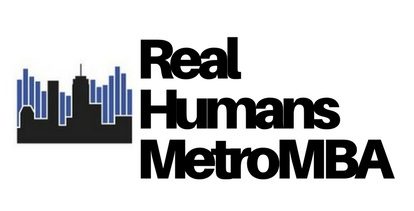York Schulich’s Groundbreaking Building Opens Its Doors, and More – Toronto

Toronto‘s finest business schools have spent the new year making positive contributions to the fast-changing world of business education. We’ve laid out some of the high points.
How Business Schools Are Adapting to the Changing World of Work – CBC News
In the age of information, the business arena is changing at record pace. In order to keep up, Canadian business schools are shifting focus from concrete skills to abstract ones. Creativity and innovation, for example, are at the forefront of the curriculum for schools like Western University Canada’s Ivey Business School. In fact, Ivey recently staff conducted 250 interviews with international industry leaders in order to glean which skills are in high demand in today’s marketplace.
“Although people do need to have the technical literacy that’s probably higher than before—the skills that are really demanded are the soft skills that will allow them to adapt,” says Mark Vandenbosch, acting Ivey Dean. Among the most important skills, Vandenbosch listed “creativity, grit, teamwork … and decision-making skills.”
“We provide a lot of support post graduation for those who want to come back at a later time to start a venture two, three, or four years later.”
Learn more about the demand for soft skills in the marketplaces here.
New Schulich School Building Opens at Toronto’s York University – Canadian Architect
On January 11, York University’s Schulich School of Business opened the doors of the Rob and Cheryl McEwen Graduate Study & Research Building. The building, designed by Baird Sampson, is among the most environmentally efficient academic buildings in North America. Funding from the Canadian Government’s Post-Secondary Institutions Strategic Investment Fund, Schulich’s Leading Change fundraising campaign, and a generous donation from Rob and Cheryl McEwen made the $50 million project possible.

The all new Rob and Cheryl McEwen Graduate Study & Research Building, opened Jan. 11 at the York University School of Business.
The building will house Schulich’s Research Office, as well as the Centre of Excellence in Responsible Business, the Schulich Centre for Global Enterprise, the Brookfield Centre in Real Estate and Infrastructure, and the newly-established Centre of Excellence in Business Analytics and Artificial Intelligence.
You can read more about the new York Schulich building addition here.
New Arrival to Canada Finds What He Was Missing – The Globe and Mail
Voyt Kryzchylkiewicz moved to Canada from Johannesburg to pursue his EMBA at University of Toronto’s Rotman School of Management and launch a business venture. In his first blog entry for EMBA Diary, he discusses those challenges and lessons of the past year of his life.
Before his move to Canada, Kryzchylkiewicz served as a board member at several companies in Europe and Africa. However, his experience with Canadian companies was limited, and he did not meet the criteria to be considered for similar positions in his new home. Kryzchylkiewcz entered Rotman with the hope of developing a professional network in Canada.
“While building my knowledge through Rotman has indeed proved valuable, the real benefits of the EMBA are the relationships that I have made, both business and personal,” Kryzchylkiewicz says. “This has already propelled my business forward and provided me with significant opportunities that I would not have had otherwise.”
Learn more about Kryzchylkiewicz’s experience here.
Real Humans of the York University Schulich School of Business

A half century after the opening of the York University Faculty of Administrative Studies (FAS), the York Schulich School of Business in Toronto continues to shape the Canadian MBA landscape.
The business school, which was officially renamed in 1995 after a receiving sizable donation from esteemed Montreal philanthropist and entrepreneur Seymour Schulich, has earned a substantial track record of firsts in Canada, including: the country’s first MBA Arts & Media Administration specialization; MBA/LLB; Nonprofit Management and Leadership Program; International MBA; Financial Services Program; Financial Engineering specialization; and the first multi-national EMBA program with the Northwestern University Kellogg School of Management.

Of course, the history of a school may paint an overall setting, but it hardly tells the story of a current, individual student in the program. York Schulich MBAs stand out among many of Toronto’s stellar business schools, typically enrolling with a GMAT score of 660 and five years of professional work experience. As well, the York Schulich international community is well-represented, at 32 percent of the overall MBA class.
According to recent employment statistics provided by the school, Schulich MBAs typically earn about $91,500 CAD per year after earning their degree. In addition, about 89 percent of graduates earn employment just three months after graduating. Most grads earn roles in finance (23 percent), with marketing/sales (20 percent) and operations (18 percent) following closely.
To get a better feel for what life is really like for current York Schulich MBAs, we talked to a handful of students, including the manager of a long-standing luxury jewelry store, a theater major and performer, and a commercial lawyer looking for a brand new career challenge. Read on to see their stories and what the future may hold for life after an MBA.
MIT Faculty Director Explains Wave of “Alt” Jobs – Boston News

Let’s explore some of the most interesting stories that have emerged from Boston business schools this week.
How Transportation Disruption and Electric Vehicles Can Slash Greenhouse Gases – Questrom School of Business Blog
BU Questrom Professor of the Practice and Director of the university Institute for Sustainable Energy (ISE)’s Peter Fox-Penner and Research Fellow Jennifer Hatch recently co-authored new research with UC Berkeley’s Will Gorman, which illuminates how the car sharing, electric car, and autonomous vehicle trends could “lead to massive reductions in greenhouse gas emissions—without overtaxing the electric utility grid.”
Hatch explains, “Transportation emissions are 26 percent of the total emissions in the United States. We need to look at realistic ways to reduce those numbers. To significantly reduce greenhouse gas emissions, we know what we need to do: electrify the transport sector and decarbonize the electricity grid.”
You can find the group’s complete study on Science Direct.
Alt-Labor, Explained – MIT Sloan Newsroom
MIT Sloan Professor and Good Companies, Good Jobs initiative Faculty Director Thomas Kochan recently unpacked what he calls the emerging “alt-labor” movement.
“Traditional forms of union representation have declined to the point where advocates inside and outside the labor movement are searching for new strategies that work with today’s economy and workforce. Most of these new forms are working outside of what is considered traditional collective bargaining.”
Kochan adds, “Management had better start to listen to the workforce. And it better recognize that if it doesn’t start to look at more sensible forms of labor law, of labor policy, then it will be in a reactive position when the public does finally stand up and say enough is enough.”
You can read more about Kochan’s work here.
Restaurateur Partners with University to Battle Food Insecurity – Sawyer Business Blog
The Suffolk University Sawyer Business School recently profiled the CARES Pantry, a new initiative developed to address food insecurity on campus and give students access to healthier lifestyles.
Gene Lee, EMBA (’96), President and Chief Executive Officer of Darden Restaurants, who funded the initiative, says, “The goal is for every student in this University to be properly nourished, in and out of class, at work, and in their everyday lives.”

Gene Lee (’96) appearing at a recent event at Suffolk University / Photo via suffolk.edu
“It’s hard enough to be a good student in a competitive environment without having to worry about your next meal. The pantry will provide students with a safety net and a place they can count on and that they deserve.”
You can read more about Lee’s appearance at his alma-mater and the CARES Pantry here.
Northwestern Kellogg & HKUST Lead the 2018 FT EMBA Rankings

Where should you go to school for your Executive MBA? Good question. While, the answer may not be quite so simple, an official EMBA ranking can help.
There are many things you should consider before choosing the best EMBA program for you including average graduation salary, industry employment, research interests, and more. However, a good place to start is with the 18th edition of the Financial Times Global Executive MBA Ranking. This ranking collects key data from business schools and alumni around the world to come up with a list of the top 100 best programs worldwide.
We’ve collated some of the critical data from the ranking study to give you insight into what’s going on in the world of EMBA programs.
EMBA Graduates Choose Industry and Manufacturing
Compared to full-time MBAs, EMBA graduates are much more likely to work in certain industries like manufacturing. In fact, three times as many EMBAs are employed in industry or manufacturing compared to their full-time peers. The figure accounts for 17 percent of all graduates. In comparison, only 10 percent of EMBA graduates are in consulting roles. And they’re less likely to work in finance, too.
EMBAs Earn More Money
EMBA graduates can also expect to earn more money than full-time MBAs after graduation. The average salary for an EMBA is $220,000 whereas an MBA alumnus can expect to make $146,000. It’s a large gap that’s similar to the salary gap between an MBA and a MiM graduate ($146,000 VS $67,000). Keep in mind, however, that the typical Executive MBA student is significantly older and often has more work experience.
In contrast, full-time MBAs win when it comes to salary boosts before and after earning the degree. MBA alumni generally increase their salary by 107 percent while EMBAs only experience a 59 percent boost.
Top 10 EMBA Programs
This year, the top ten EMBA programs, according to the Financial TImes, includes four joint programs. In fact, these were the top four programs in the world ranking well for post-EMBA salary, alumni leadership positions, and work experience. Each of these programs offer excellent networking opportunities thanks to different cohorts across different campuses, connecting students around the world.
Here’s how all the rankings stacked up.
1. Northwestern Kellogg & HKUST
This joint program ranks first for the third year in a row, and it’s the ninth time in 12 years that it has headed the list—the other three times it ranked second. The program is known for having the highest average salary three years post-graduation, $507,000—$140,000 more than the second-highest salary. It’s also known for having half of its alumni as company leaders three years post-graduation.

No EMBA has dominated the annual FT ranking quite like the Northwestern Kellogg & HKUST join program, earning top billing once again for 2018.
2. HEC Paris, LSE, & NYU Stern
This trium global EMBA program ranks second in 2018, up from fifth the previous year. The program is ranked first in work experience, languages, and international course experience rank. It also ranks highly in average salary ($347,970) with an expected 60 percent salary increase three years post-EMBA.
3. Tsinghua University & INSEAD
For the second year in a row, the Tsinghua-INSEAD dual degree MBA comes in third overall on the FT EMBA ranking. Located in China, Singapore, France, and the UAE, the program is known for its high salary three years post graduation ($365,746), and its high percentage of female students (45 percent).
The rest of the top ten shakes down as follows:
- EMBA—Global Asia: Columbia Business School, HKU, & London Business School
- Ceibs
- HEC Paris
- Washington University Olin Business School
- Shanghai: Jiao Tong University Antai
- IESE Business School
- MIT Sloan School of Management
Surprising Schools
There were quite a few surprises in this year’s EMBA ranking.
- Though HEC Paris has ranked in the top five since 2006 because of its joint program with NYU Stern and LSE, this was the first year the school entered the top ten ranking on its own. The HEC Paris solo EMBA program ranks sixth overall, making it the highest new entrant.
- IESE Business School took home the crown as the top EMBA program for the new criterion corporate social responsibility (CSR).
- The University of Toronto Rotman School of Management EMBA moved up the most places in 2018, rising to 47th place overall—20 places higher.

No school saw a bigger rankings jump than the University of Toronto Rotman School of Management, rising 20 spots in 2018.
FT EMBA Ranking Methodology
To come up with the 2018 EMBA ranking, the Financial Times reached out to a record 139 programs with two online surveys: the first completed by the school and the second by alumni who graduated from programs in 2014. The methodology of the ranking is as follows:
- Alumni were required to provide feedback on salary today, salary increase, career progress, work experience, and aims achieved—accounting for 55 percent of the ranking’s weight.
- Schools provided insight into ten criteria, accounting for 35 percent of the total ranking. Criteria included: gender and international diversity, board members, international program reach, and more.
- Accounting for the final 10 percent of the ranking was the FT research rank, which looks at the number of articles published by a school’s full-time faculty.
And, for the first time ever, this year’s EMBA ranking included a new criterion for corporate social responsibility (CSR). This new criterion took a look at how many of a school’s core courses were dedicated to ethics, social, and environmental issues. Weighting at 3 percent, this criteria replaced the number of Ph.D. graduates per school.
Impulses, a Culinary EMBA, and Immigration Figures – Boston News

Let’s explore some of the most interesting stories that have emerged from Boston business schools this week.
How God Influences Your Grocery Bill – Questrom School of Business Blog
BU Questrom Professor of Marketing Didem Kurt recently co-authored new research with the University of Pittsburgh’s J. Jeffrey Inman and Harvard’s Francesca Gino that explored links between “grocery sales data and rates of religious adherence in thousands of counties across the country.”
According to the study, “religion and religious messages were linked to lower spending.”
People who were reminded of God’s presence were less likely than another control group to spend money on “impulse purchases such as magazines and gum,” an effect that the researchers note “persisted whether or not an individual described themselves as religious.”
Kurt explains, “We attribute this result to the notion that thinking about God reminds people of commonly shared values—such as frugality—even if they don’t believe in God. Managers may want to consider proximity to houses of worship when choosing a retail location. They need to be cognizant of the effect of religious cues and reminders on consumer spending.”
You can read the full article here and check out the complete paper on Science Direct.
A Full-Course Meal – Sawyer Business School Blog
The Sawyer Business School Blog recently profiled David Lanci, EMBA ’02, who after many years as a chef, shifted into the food services industry and founded NexDine, which offers “catering and dining services to corporations, schools, colleges, and senior living facilities around the country.”
Lanci told the Sawyer blog that his Suffolk EMBA “gave [him] the confidence to go out and start this company. One thing I really learned from my EMBA is to take a holistic view of everything and never have a singular view. It’s not just about what’s on the plate.”

NexDine founder David Lanci, EMBA ’02
Lanci continues:
“I realized that how you communicate with the people in the group has a dramatic impact on the outcome. I realized it wasn’t just out of sheer will you could get something done. You had to collaborate, and that was the aha moment for me.”
He concludes, “Food is almost the easy part. It’s just as challenging—if not more so—to manage people, manage clients, manage budgets. And in our industry, we’re not making widgets. We can’t do everything the same way for every client. Every location is different. People’s appetites are different.”
You can read the full interview with Lanci here.
Undocumented Immigrant Population Roughly Double Current Estimate – MIT Sloan Newsroom
According to new research from MIT Sloan’s Mohammad Fazel-Zarandi and Yale’s Edward Kaplan and Jonathan Feinstein, “the number of undocumented immigrants living in the country is about 22.1 million, nearly twice the most prominent current estimate of 11.3 million.”
Fazel-Zarandi explains, “It’s likely that undocumented immigrants are more difficult to locate and survey than other foreign-born residents and if contacted, they may be inclined to misreport their country of origin, citizenship, and number of household residents, fearing the legal consequences of revealing their status.”
He continues:
“A common argument in favor of a tougher immigration policy is that people who have entered the country illegally elevate levels of violent criminal activity.”
“Whatever the extent of criminality that is assessed, it’s clear that crime statistics be thought of in relation to a substantially larger population of undocumented immigrants. This lessens the risk in per capita terms. What’s acceptable for a population of 11 million is unlikely to be sufficient for a population of 22 million.”
You can read the full article here.
Supply Chains, Rankings Changes, and More – Philly News

We know it’s hard to keep up with the news while you’re enjoying your summer, so we put all the latest Philly MBA news in one place just for you!
How UD MBA Grad Lisa Weaver Saved DuPont $8 Million and Counting — UDaily
Lisa Weaver, an MBA graduate from the Delaware University Lerner College of Business and Economics, was recently named to the Institute for Supply Management’s 30 Under 30 Supply Chain Stars list. As category manager for DuPont’s sourcing and logistics department, Weaver led initiatives resulting in more than $8 million in savings.
In a recent Q&A with her alma mater, Weaver explained how her experiences at UD influenced her career in supply chain management.
“Lerner resources like the Career Services Center allowed me to find the right jobs for me at the time,” she said, adding:
“Additional programs like the Graduate Executive Mentors program allowed me to expand my network and develop a relationship with a mentor. My mentor has challenged my thinking, increased my confidence and provided alternative perspectives. Each of these experiences through Lerner have influenced my career in a different way and provided additional capabilities to be successful.”
You can read more about Weaver’s impact at DuPont and her Lerner experience here.
Faculty Quality, Other Factors Propel Penn State Smeal Executive MBA — Smeal News
The Executive MBA Program at Penn State’s Smeal College of Business was ranked as the 26th overall and 7th among programs from public institutions in The Economist’s 2018 recent list of top global EMBAs.
“What makes the Smeal Executive MBA Program truly unique and led to a successful debut in today’s rankings is our unmatched combination of faculty quality and the unique access our students have to those amazing resources,” said Managing Director Jason Stieg. “The program delivers every course in a face-to-face environment using the same renowned faculty who teach in Smeal’s full-time residential MBA program at University Park.”
Smeal’s EMBA in Philadelphia is one of the top ten public programs in the world, according to The Economist.
The Philadelphia-based Executive MBA takes place over 17 months, and is the highest-ranked Philadelphia-area program. You can learn more about the program here.
Saint Joseph’s Offers Exclusive Healthcare MBA Program for American Osteopathic Association — SJU News
According to a recent press release, Saint Joseph’s Haub School of Business has announced a healthcare-focused Executive MBA program designed exclusively for the American Osteopathic Association’s physician members.
“An executive MBA in health care expands doctors’ knowledge of industry challenges and solutions and allows them to prepare for their next steps—career shifts into administration, consultancy, or running a private practice,” said Joseph A. DiAngelo, dean of the Haub School. “We are proud to equip healthcare leaders with such valuable skills.”
The program offers participants an online, two-year MBA while also simultaneously completing medical education credits. To learn more about the executive MBA in health care program, or to learn how to apply, click here.
Temple Fox Business Dean Moshe Porat Resigns – MetroMBA
Months after Temple University’s Fox School of Business was removed from the U.S. News & World Report rankings earlier this year, Moshe Porat—the long-time dean of the business school—was officially asked to resign while the internal structure of the school goes into rebuild-mode.
No news has been released as of yet of Porat’s replacement, or which methods Fox will offer to change in the future when it comes to school rankings. You can read more about his resignation here.
